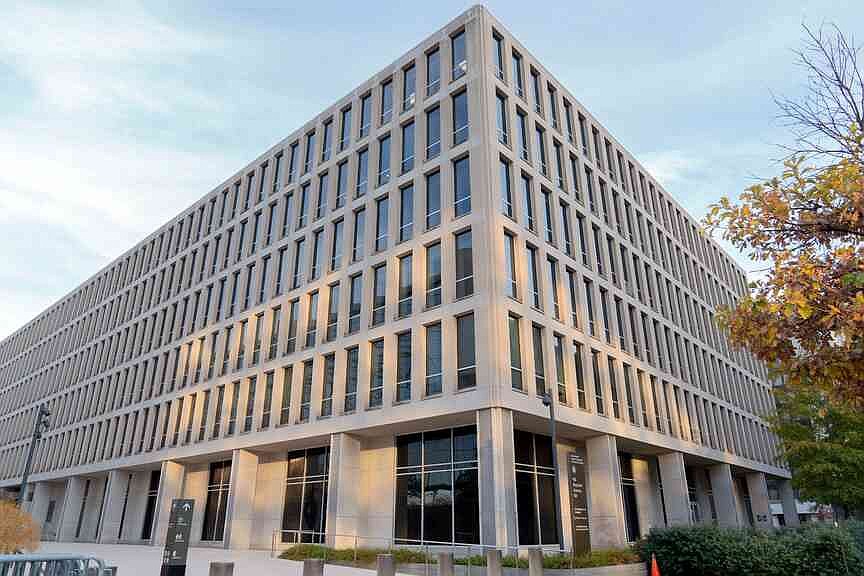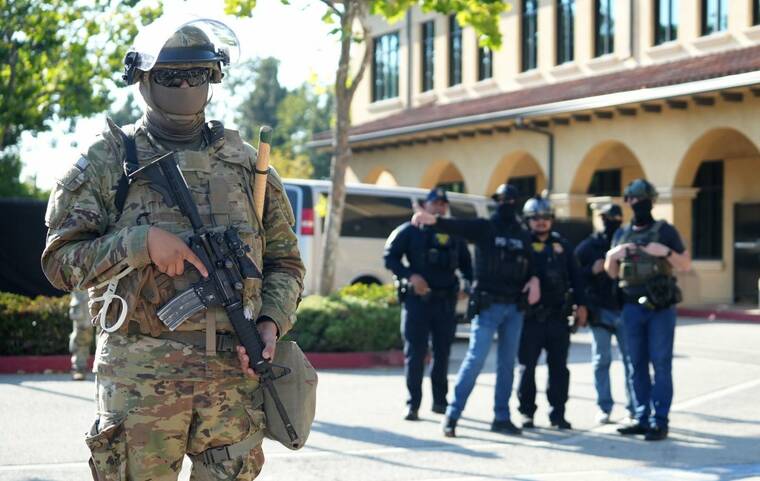Copyright Arkansas Online

WASHINGTON -- The Trump administration is forging ahead with plans to eject some nonprofits from a popular student loan forgiveness program if their work is deemed to have a "substantial illegal purpose" -- a move that could cut off some teachers, doctors and other public workers from federal loan cancellation. New rules finalized Thursday give the Education Department expanded power to ban organizations from the Public Service Loan Forgiveness program. The Trump administration said it's necessary to block taxpayer money from lawbreakers. Critics say it turns the program into a tool of political retribution. Set to take effect in July, the policy is aimed primarily at organizations that work with immigrants and transgender youth. It grants the education secretary power to exclude groups from the program if they engage in activities including the trafficking or "chemical castration" of children, illegal immigration and supporting terrorist organizations. "Chemical castration" is defined as using hormone therapy or drugs that delay puberty -- gender-affirming care common for transgender children or teens. It amounts to a major reworking of a program that has canceled loans for more than 1 million Americans and was created by Congress in 2007 to steer more college graduates into lower-paying public sector jobs. The Trump administration has yet to identify specific groups it intends to target, but it estimates fewer than 10 would be barred per year. The program "was meant to support Americans who dedicate their careers to public service -- not to subsidize organizations that violate the law, whether by harboring illegal immigrants or performing prohibited medical procedures that attempt to transition children away from their biological sex," Education Undersecretary Nicholas Kent said in a statement. The new rules are weaponizing loan forgiveness to make it harder for groups that work on issues like refugee and transgender rights, said Michael Lukens, executive director of the Amica Center for Immigrant Rights. Lukens said many of the attorneys, social workers and paralegals who work at his organization on deportation defense and other immigration litigation count on public service loan forgiveness to take jobs that pay significantly less than the private sector. "All of a sudden, that's going away," Lukens said. "The younger generation, I hope, will be able to wait this out for the next couple of years to see if it gets better, but if it doesn't, we're going to see a lot of people leave the field to go and work in a for-profit space." The program promises to cancel federal student loans for government employees and many nonprofit workers after they have made 10 years of payments. It has long been open to government workers, teachers, firefighters and employees of public hospitals. Eligibility rules laid out by Congress focus mostly on nonprofits' tax status and their field of work. The benefit has gone to workers at organizations across the political spectrum. Yet in a March action demanding new limits, President Donald Trump said it has "misdirected tax dollars into activist organizations that not only fail to serve the public interest, but actually harm our national security and American values, sometimes through criminal means." A central concern of critics is the wide latitude the department is giving itself to determine if an organization's work should be considered to have a "substantial illegal purpose." Employers across state and local government as well as nonprofits can be expelled from the program if a state or federal court rules against them, or if they agree to a legal settlement that includes admission of guilt. Performing gender-affirming care in the 27 states that outlaw it, for example, appears to be grounds for expulsion. Information for this article was contributed by Annie Ma of The Associated Press.



